 The Anoka County Drug Task Force (ACDTF) is a cooperative partnership of local law enforcement agencies encompassing the greater Minneapolis area. The task force is co-located in the Anoka County Sheriff’s Office in Andover, MN and focuses its enforcement efforts on mid- to upper-level drug trafficking organizations (DTO) operating in the greater Minneapolis metropolitan area while supporting street-level investigative operations targeting gangs with ties to DTO’s.
The Anoka County Drug Task Force (ACDTF) is a cooperative partnership of local law enforcement agencies encompassing the greater Minneapolis area. The task force is co-located in the Anoka County Sheriff’s Office in Andover, MN and focuses its enforcement efforts on mid- to upper-level drug trafficking organizations (DTO) operating in the greater Minneapolis metropolitan area while supporting street-level investigative operations targeting gangs with ties to DTO’s.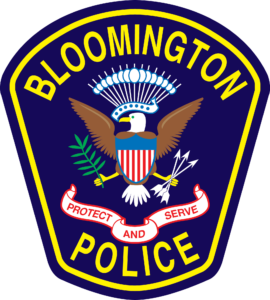 Bloomington Police Department Interdiction is located within the metro area of Minneapolis/St. Paul which has become a major trans-shipment area for the upper Midwest region of the United States. Drug Trafficking Organizations (DTOs) operating in the Twin Cities area often utilize the legitimate infrastructure of the community to conceal and transport their controlled substances and the illicit proceeds derived from their trafficking activities.
Bloomington Police Department Interdiction is located within the metro area of Minneapolis/St. Paul which has become a major trans-shipment area for the upper Midwest region of the United States. Drug Trafficking Organizations (DTOs) operating in the Twin Cities area often utilize the legitimate infrastructure of the community to conceal and transport their controlled substances and the illicit proceeds derived from their trafficking activities. The Brown County Drug Task Force (BCDTF) was formed in 1988, and is based in Green Bay, WI. The BCDTF was established to proactively investigate drug related crimes in Brown County, Wisconsin and became a HIDTA initiative in 2010. The BCDTF targets the ever-increasing drug trafficking threats encountered not only in Brown Co., but also the Northeast region of Wisconsin. The task force utilizes a collaborative task force model made up of city, county, state and federal investigators.
The Brown County Drug Task Force (BCDTF) was formed in 1988, and is based in Green Bay, WI. The BCDTF was established to proactively investigate drug related crimes in Brown County, Wisconsin and became a HIDTA initiative in 2010. The BCDTF targets the ever-increasing drug trafficking threats encountered not only in Brown Co., but also the Northeast region of Wisconsin. The task force utilizes a collaborative task force model made up of city, county, state and federal investigators.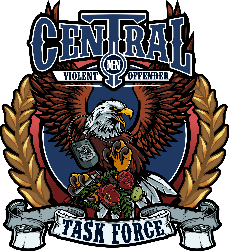 The Central Minnesota Drug Trafficking Initiative will target enforcement efforts on mid to upper-level narcotics distributors, violent criminals, and career offenders. The initiative will focus on the disruption and dismantling of drug traffickers and drug trafficking organizations in the region. Our initiative will focus on the biggest threats to our region which are fentanyl, methamphetamine, heroin, cocaine and marijuana distribution. The Central MN Violent Offender Task force will work in collaboration with our local, state, and federal partners to provide increased partnerships to combat illegal drugs and violent crimes.
The Central Minnesota Drug Trafficking Initiative will target enforcement efforts on mid to upper-level narcotics distributors, violent criminals, and career offenders. The initiative will focus on the disruption and dismantling of drug traffickers and drug trafficking organizations in the region. Our initiative will focus on the biggest threats to our region which are fentanyl, methamphetamine, heroin, cocaine and marijuana distribution. The Central MN Violent Offender Task force will work in collaboration with our local, state, and federal partners to provide increased partnerships to combat illegal drugs and violent crimes.
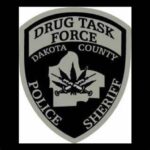 The Dakota County Drug Task Force (DCDTF) operates under a Joint Powers Agreement and is composed of local law enforcement agencies within Dakota County and the city of Savage in Scott County. The DCDTF targets enforcement efforts on higher level narcotics distributors, violent offenders, gang members, and career criminals to stop the flow of illicit narcotics and weapons into the area. The DCDTF also conducts investigations into persistent narcotic related community problems that impact the quality of life in Dakota County and the City of Savage.
The Dakota County Drug Task Force (DCDTF) operates under a Joint Powers Agreement and is composed of local law enforcement agencies within Dakota County and the city of Savage in Scott County. The DCDTF targets enforcement efforts on higher level narcotics distributors, violent offenders, gang members, and career criminals to stop the flow of illicit narcotics and weapons into the area. The DCDTF also conducts investigations into persistent narcotic related community problems that impact the quality of life in Dakota County and the City of Savage. The Dane County Drug Task Force was formed in 1972, and is located in Madison, WI. The Dane County Drug Task Force was established as a multi-jurisdictional law enforcement unit that works closely with state and federal partners to form a robust, intelligence driven drug investigation initiative. The main objective of the Dane County Drug Task Force is to: identify, arrest, and prosecute high-level street dealers and specifically focus its investigations on mid-to-high level Drug Trafficking Organizations (DTOs).
The Dane County Drug Task Force was formed in 1972, and is located in Madison, WI. The Dane County Drug Task Force was established as a multi-jurisdictional law enforcement unit that works closely with state and federal partners to form a robust, intelligence driven drug investigation initiative. The main objective of the Dane County Drug Task Force is to: identify, arrest, and prosecute high-level street dealers and specifically focus its investigations on mid-to-high level Drug Trafficking Organizations (DTOs).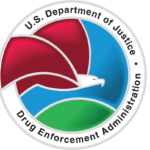 The Drug Gang Task Force (DGTF) is a DEA-led initiative based in Milwaukee, WI and consists of a cooperative partnership of federal, state and local law enforcement agencies operating in Southeastern Wisconsin. The primary purpose of the DGTF is to focus on the disruption and dismantlement of violent drug trafficking organizations (DTOs) in conjunction with their significant drug trafficking activities. Specific emphasis is given to DTOs engaging in violent crimes including homicide, shootings, robbery, and aggravated assaults that use tactics of fear and intimidation to maintain their foothold and control on drug markets. It is the strategy of the DGTF to target these violent DTOs to create safer communities. Along with focusing on local gangs and violent drug trafficking activities, the DGTF further expands most investigations into multi-state and even international investigations, in an attempt to dismantle DTOs at the source of supply level.
The Drug Gang Task Force (DGTF) is a DEA-led initiative based in Milwaukee, WI and consists of a cooperative partnership of federal, state and local law enforcement agencies operating in Southeastern Wisconsin. The primary purpose of the DGTF is to focus on the disruption and dismantlement of violent drug trafficking organizations (DTOs) in conjunction with their significant drug trafficking activities. Specific emphasis is given to DTOs engaging in violent crimes including homicide, shootings, robbery, and aggravated assaults that use tactics of fear and intimidation to maintain their foothold and control on drug markets. It is the strategy of the DGTF to target these violent DTOs to create safer communities. Along with focusing on local gangs and violent drug trafficking activities, the DGTF further expands most investigations into multi-state and even international investigations, in an attempt to dismantle DTOs at the source of supply level.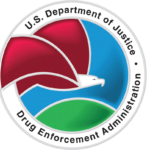 The DEA Interdiction initiative is a partnership of federal, state, and local law enforcement agencies whose primary mission is the interdiction of illicit drugs and cash transiting to and from the Minneapolis Metropolitan Area as well as the outlying counties that comprise the district of Minnesota. DEA Interdiction is led by the DEA, and conducts coordinated interdiction operations at the Minneapolis-St. Paul Airport, bus/train stations and inbound/outbound parcels and targets drug trafficking organizations (DTOs) responsible for transporting drugs and bulk currency to and from their area of responsibility (AOR).
The DEA Interdiction initiative is a partnership of federal, state, and local law enforcement agencies whose primary mission is the interdiction of illicit drugs and cash transiting to and from the Minneapolis Metropolitan Area as well as the outlying counties that comprise the district of Minnesota. DEA Interdiction is led by the DEA, and conducts coordinated interdiction operations at the Minneapolis-St. Paul Airport, bus/train stations and inbound/outbound parcels and targets drug trafficking organizations (DTOs) responsible for transporting drugs and bulk currency to and from their area of responsibility (AOR). Minnesota Major Crimes Task Force (MCTF) is part of the Drug Enforcement Administration (DEA), Omaha Filed Division, Minneapolis-St. Paul District Office (MSPDO) based in Minneapolis, MN. MCTF encompasses several DEA Special Agents, Intelligence Research Specialists and three task force officers. MCTF will be responsible for investigating serious drug offenses and drug related violent crimes having a nexus to HIDTA designated counties in MN. The focus of the MCTF will be on the disruption and dismantling of these violent drug trafficking organizations (DTOs) and transnational criminal organizations (TCOs). The reduction in violence will be achieved through the targeted enforcement of high- level narcotics traffickers, manufacturers, and transporters; most of whom source the metro area from out of state and ultimately from cartels located in Mexico.
Minnesota Major Crimes Task Force (MCTF) is part of the Drug Enforcement Administration (DEA), Omaha Filed Division, Minneapolis-St. Paul District Office (MSPDO) based in Minneapolis, MN. MCTF encompasses several DEA Special Agents, Intelligence Research Specialists and three task force officers. MCTF will be responsible for investigating serious drug offenses and drug related violent crimes having a nexus to HIDTA designated counties in MN. The focus of the MCTF will be on the disruption and dismantling of these violent drug trafficking organizations (DTOs) and transnational criminal organizations (TCOs). The reduction in violence will be achieved through the targeted enforcement of high- level narcotics traffickers, manufacturers, and transporters; most of whom source the metro area from out of state and ultimately from cartels located in Mexico. The Native American Drug and Gang Initiative (NADGI) is a collaborative effort of tribal, county, state, and federal law enforcement entities that focus entirely on Native American communities and their specific drug threats. This is accomplished through the central coordination of the individual tribal law enforcement entities and partners under the leadership of the Wisconsin Department of Justice – Division of Criminal Investigation (WI DOJ-DCI). The footprint of the NADGI operations is encompassed throughout a vast geographical area in the State of Wisconsin, currently serving 11 federally recognized American Indian Nations to include:
The Native American Drug and Gang Initiative (NADGI) is a collaborative effort of tribal, county, state, and federal law enforcement entities that focus entirely on Native American communities and their specific drug threats. This is accomplished through the central coordination of the individual tribal law enforcement entities and partners under the leadership of the Wisconsin Department of Justice – Division of Criminal Investigation (WI DOJ-DCI). The footprint of the NADGI operations is encompassed throughout a vast geographical area in the State of Wisconsin, currently serving 11 federally recognized American Indian Nations to include:
• Menominee
• Lac Courte Oreilles
• Lac du Flambeau
• Bad River
• Potawatomi
• Oneida
• Stockbridge Munsee
• Sokaogon Chippewa
• St. Croix
• Ho-Chunk
• Red Cliff
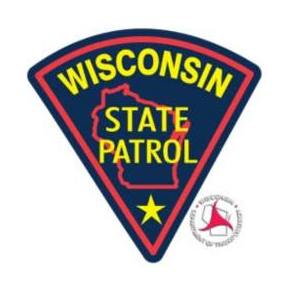 The Domestic Highway Enforcement Initiative is a Wisconsin Department of Transportation – Division of State Patrol (WSP) – led initiative, under the direct supervision of a WSP Sergeant.
The Domestic Highway Enforcement Initiative is a Wisconsin Department of Transportation – Division of State Patrol (WSP) – led initiative, under the direct supervision of a WSP Sergeant.
- The DHE Initiative is an interdiction/enforcement task force designed to disrupt the flow of drugs, money and firearms on the state and federal highways in Wisconsin. This task force is led by the Wisconsin State Patrol (WSP) and primarily conducts interdiction efforts on all Interstate Systems and State Highways in Wisconsin.
- The DHE Initiative proactively utilizes proven motor-vehicle interdiction methods, to successfully disrupt and investigate drug, firearm, and money couriers trafficking those items on Wisconsin’s highways.
- The initiative utilizes the North Central HIDTA Investigative Support Center (ISC) to gather and exploit criminal intelligence to improve data-driven highway interdiction. Further, WSP has a strong relationship with the Wisconsin National Guard-Counter Drug Program (WI CDP), which has an analyst embedded within WSP and is also associated with the ISC.
 Border Enforcement Security Task Force (B.E.S.T.) enables multi-jurisdictional enforcement strategies to detect, deter, and dismantle transnational criminal activity at commercial transportation facilities. For B.E.S.T. to fully address increased vulnerabilities and threats posed by transnational criminal organizations (TCOs), they disrupt TCO’s use of the various transportation facilities located throughout the HSI St. Paul area of responsibility (AOR) and the surrounding region. B.E.S.T. dismantles their criminal networks domestically and abroad.
Border Enforcement Security Task Force (B.E.S.T.) enables multi-jurisdictional enforcement strategies to detect, deter, and dismantle transnational criminal activity at commercial transportation facilities. For B.E.S.T. to fully address increased vulnerabilities and threats posed by transnational criminal organizations (TCOs), they disrupt TCO’s use of the various transportation facilities located throughout the HSI St. Paul area of responsibility (AOR) and the surrounding region. B.E.S.T. dismantles their criminal networks domestically and abroad.
 The FBI Safe Streets initiative is a cooperative partnership of federal, state, and local law enforcement agencies encompassing the Minneapolis/St. Paul metropolitan area. The task force is co-located with the FBI office in Minneapolis, and targets enforcement efforts on mid to upper-level drug trafficking organizations (DTOs), violent gang actors, violent criminal offenders, and career criminals in the Twin Cities metropolitan area.
The FBI Safe Streets initiative is a cooperative partnership of federal, state, and local law enforcement agencies encompassing the Minneapolis/St. Paul metropolitan area. The task force is co-located with the FBI office in Minneapolis, and targets enforcement efforts on mid to upper-level drug trafficking organizations (DTOs), violent gang actors, violent criminal offenders, and career criminals in the Twin Cities metropolitan area. Hennepin County Sheriff’s Office specialty task forces, Hennepin County Drug Task Force (HCDTF) and Hennepin County Violent Offenders Task Force (HCVOTF) focuses on the apprehension of violent offenders and career criminals. These task forces specifically target mid to upper- level narcotics traffickers involved in the distribution of heroin, methamphetamine, marijuana, cocaine, and synthetic opioids in and around Hennepin County. The most significant threats to public safety in Hennepin County are violent crimes surrounding narcotics trafficking perpetrated by Drug Trafficking Organizations (DTOs), which left unaddressed, begets more narcotics related violent crime which results in injury and/or death. DTOs are responsible for a significant amount of violent crime in the form of retaliation and/or intimidation directed at other DTOs in Hennepin County. This violent crime includes but is not limited to aggravated robberies, aggravated assaults, kidnappings, and murders.
Hennepin County Sheriff’s Office specialty task forces, Hennepin County Drug Task Force (HCDTF) and Hennepin County Violent Offenders Task Force (HCVOTF) focuses on the apprehension of violent offenders and career criminals. These task forces specifically target mid to upper- level narcotics traffickers involved in the distribution of heroin, methamphetamine, marijuana, cocaine, and synthetic opioids in and around Hennepin County. The most significant threats to public safety in Hennepin County are violent crimes surrounding narcotics trafficking perpetrated by Drug Trafficking Organizations (DTOs), which left unaddressed, begets more narcotics related violent crime which results in injury and/or death. DTOs are responsible for a significant amount of violent crime in the form of retaliation and/or intimidation directed at other DTOs in Hennepin County. This violent crime includes but is not limited to aggravated robberies, aggravated assaults, kidnappings, and murders.
 Ken-Prairie Drug Gang Task Force (KPDGTF) is a cooperative law enforcement partnership between the City of Kenosha Police Department and the Village of Pleasant Prairie Police Department. KPDGTF is designed to disrupt and dismantle drug trafficking organizations (DTOs) that operate in the Kenosha and Pleasant Prairie jurisdictions as well as those DTOs that traverse the jurisdictions as they follow the drug pipeline between Illinois and Minnesota. The KPDGTF’s primary purpose, parallel to disrupting/dismantling DTOs, is to focus on the violence associated with the trafficking of drugs by inherently violent street gangs and like groups, with the end goal of keeping a higher and safer quality of life for the citizens of Kenosha and Pleasant Prairie.
Ken-Prairie Drug Gang Task Force (KPDGTF) is a cooperative law enforcement partnership between the City of Kenosha Police Department and the Village of Pleasant Prairie Police Department. KPDGTF is designed to disrupt and dismantle drug trafficking organizations (DTOs) that operate in the Kenosha and Pleasant Prairie jurisdictions as well as those DTOs that traverse the jurisdictions as they follow the drug pipeline between Illinois and Minnesota. The KPDGTF’s primary purpose, parallel to disrupting/dismantling DTOs, is to focus on the violence associated with the trafficking of drugs by inherently violent street gangs and like groups, with the end goal of keeping a higher and safer quality of life for the citizens of Kenosha and Pleasant Prairie.
 The Kenosha County Drug Task Force (KCDTF) consists of the Kenosha Drug Operations Group (KDOG), a cooperative partnership between the Kenosha County Sheriff’s Department and The Village of Twin Lakes Police Department. The KCDTF/KDOG focuses primarily on targeting mid-to-upper-level drug trafficking organizations (DTOs) within Kenosha Co as well as extending into southeast Wisconsin and Northeast Illinois, with a stressed focus on drug interdiction involving interstate 94, connecting Chicago, IL with Milwaukee, WI and points north.
The Kenosha County Drug Task Force (KCDTF) consists of the Kenosha Drug Operations Group (KDOG), a cooperative partnership between the Kenosha County Sheriff’s Department and The Village of Twin Lakes Police Department. The KCDTF/KDOG focuses primarily on targeting mid-to-upper-level drug trafficking organizations (DTOs) within Kenosha Co as well as extending into southeast Wisconsin and Northeast Illinois, with a stressed focus on drug interdiction involving interstate 94, connecting Chicago, IL with Milwaukee, WI and points north.
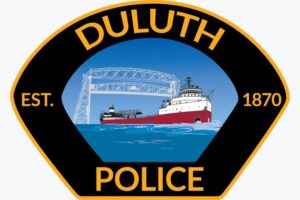 The Lake Superior Violent Offender Task Force (LSVOTF) is a cooperative partnership of federal, state and local law enforcement agencies encompassing St. Louis, Lake and Carlton Counties in northeastern Minnesota and the city of Superior, Wisconsin. The LSVOTF focuses on the dismantling and disruption of mid to upper level drug trafficking organizations (DTOs) operating primarily in St. Louis County, MN, a statistically proven high demand area for substance use and abuse. The LSVOTF also provides support to Carlton and Lake Counties in Minnesota and the city of Superior in Wisconsin. The initiative works both sides of the equation by attacking sources of supply while simultaneously reducing demand through education and outreach methods. Success is evaluated by decreasing overdose deaths, reducing the quantity of illegal narcotics in the area and improving quality of life for residents.
The Lake Superior Violent Offender Task Force (LSVOTF) is a cooperative partnership of federal, state and local law enforcement agencies encompassing St. Louis, Lake and Carlton Counties in northeastern Minnesota and the city of Superior, Wisconsin. The LSVOTF focuses on the dismantling and disruption of mid to upper level drug trafficking organizations (DTOs) operating primarily in St. Louis County, MN, a statistically proven high demand area for substance use and abuse. The LSVOTF also provides support to Carlton and Lake Counties in Minnesota and the city of Superior in Wisconsin. The initiative works both sides of the equation by attacking sources of supply while simultaneously reducing demand through education and outreach methods. Success is evaluated by decreasing overdose deaths, reducing the quantity of illegal narcotics in the area and improving quality of life for residents.
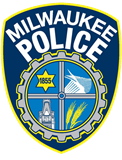
• The MMDEG is comprised of an MPD Sergeant, a MPD Detective, a MPD Officer, a West Allis Police Department Corporal, and a South Milwaukee Police Department Investigator.
• The MMDEG proactively utilizes intelligence gathering, information sharing, and a variety of investigative strategies to identify, investigate, arrest, and prosecute mid to upper-level drug traffickers and target Drug Trafficking Organizations (DTOs).

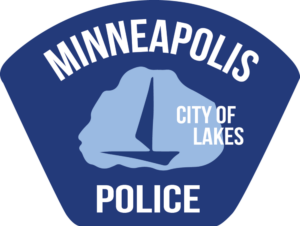 The Minneapolis Police Department is a local law enforcement agency within Hennepin County, serving approximately 425,336 community members. There has been a dramatic increase in overdose deaths nationwide and in turn a focus on opioid and fentanyl related crimes and deaths. In Minneapolis, we have seen a rise in overdose calls for service, almost doubling since 2020. In regard to Minneapolis crimes, it was found that there was a link between the recovery of guns and Fentanyl and cocaine. With drug related crimes and overdose incidents on the rise, reducing the trafficking of illicit drugs into Minneapolis by concentrating on the relationship between gun crimes and drugs will be crucial for effective intervention. The Greater Twin Cities Violent Crime Initiative will employ proactive, data-driven policing strategies in collaboration with federal partners to enhance investigations and prosecution efforts.
The Minneapolis Police Department is a local law enforcement agency within Hennepin County, serving approximately 425,336 community members. There has been a dramatic increase in overdose deaths nationwide and in turn a focus on opioid and fentanyl related crimes and deaths. In Minneapolis, we have seen a rise in overdose calls for service, almost doubling since 2020. In regard to Minneapolis crimes, it was found that there was a link between the recovery of guns and Fentanyl and cocaine. With drug related crimes and overdose incidents on the rise, reducing the trafficking of illicit drugs into Minneapolis by concentrating on the relationship between gun crimes and drugs will be crucial for effective intervention. The Greater Twin Cities Violent Crime Initiative will employ proactive, data-driven policing strategies in collaboration with federal partners to enhance investigations and prosecution efforts.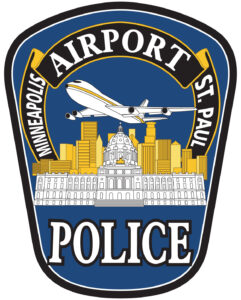 The Minneapolis-Saint Paul International Airport (MSP) Police Department Interdiction initiative is dedicated to fighting drug trafficking and illicit proceeds through MSP Airport. The MSP area of responsibility is a major trans-shipment point for the upper Midwest. Drug trafficking organizations are utilizing the infrastructure of the airport to conceal, and transport-controlled substances and illicit proceeds derived from their sale. This includes fentanyl, heroin, methamphetamine, cocaine, marijuana, THC derivatives, opioids, and synthetics originating from domestic and international origins.
The Minneapolis-Saint Paul International Airport (MSP) Police Department Interdiction initiative is dedicated to fighting drug trafficking and illicit proceeds through MSP Airport. The MSP area of responsibility is a major trans-shipment point for the upper Midwest. Drug trafficking organizations are utilizing the infrastructure of the airport to conceal, and transport-controlled substances and illicit proceeds derived from their sale. This includes fentanyl, heroin, methamphetamine, cocaine, marijuana, THC derivatives, opioids, and synthetics originating from domestic and international origins. The Olmsted County Drug TF (OCDTF) operates in Southeast Minnesota, and its purpose is to target the drug trafficking organizations (DTOs) operating in their area of responsibility.. This initiative also targets the national DTOs who utilize Interstates I35 and I90 to distribute their narcotics throughout the North Central HIDTA Region. This initiative has 21 investigators and 1 National Guard analyst, Commander and Administrative Assistant that are located in the Olmsted County Sheriff’s Office. The OCDTF Attorney is located in the Olmsted County Attorney Office. This initiative also works closely with the Rochester Police Dept., Olmsted County Sheriff Office, federal, state and regional law enforcement agencies.
The Olmsted County Drug TF (OCDTF) operates in Southeast Minnesota, and its purpose is to target the drug trafficking organizations (DTOs) operating in their area of responsibility.. This initiative also targets the national DTOs who utilize Interstates I35 and I90 to distribute their narcotics throughout the North Central HIDTA Region. This initiative has 21 investigators and 1 National Guard analyst, Commander and Administrative Assistant that are located in the Olmsted County Sheriff’s Office. The OCDTF Attorney is located in the Olmsted County Attorney Office. This initiative also works closely with the Rochester Police Dept., Olmsted County Sheriff Office, federal, state and regional law enforcement agencies.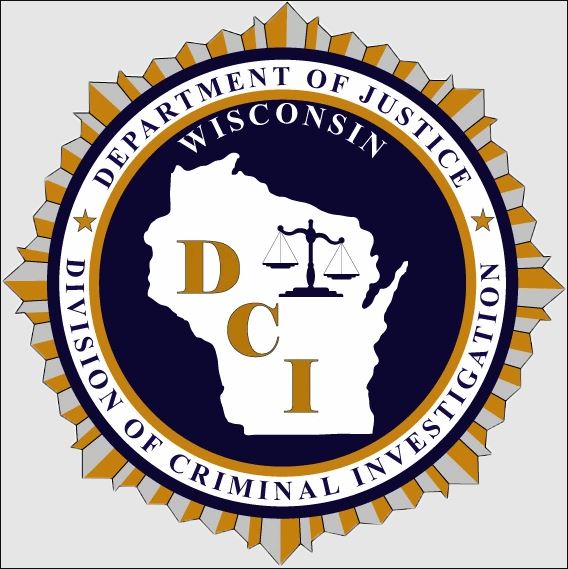 The Overdose Death Initiative (ODI) is a Wisconsin Department of Justice-Division of Criminal Investigation (DCI)- led initiative, under the direct supervision of a DCI supervisor.
The Overdose Death Initiative (ODI) is a Wisconsin Department of Justice-Division of Criminal Investigation (DCI)- led initiative, under the direct supervision of a DCI supervisor.
- The task force is comprised of DCI Special Agents, federal agents, city/county investigators and Wisconsin National Guard-Counter Drug Program (CDP) intelligence analysts.
- The ODI proactively utilizes a federal, state and local task force model, to successfully investigate and prosecute the drug trafficking leading to specific overdose deaths in throughout the state of Wisconsin, with a focus on the most populated areas in Southeastern Wisconsin.
- Task force leverages the strong analytical services of CDP analysts in conjunction with their embedded mission within the HIDTA Investigative Support Center to exploit all intelligence and evidence gathered as part of the initial overdose death and elsewhere.
- Further, a partnership with public health and community outreach organizations will be realized in an attempt to further continued and sustained education of the public regarding not only the dangers of opioid use but all drugs of abuse.
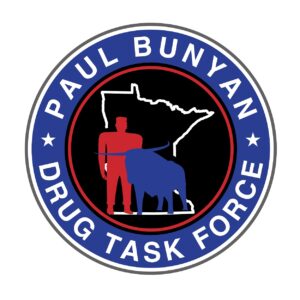 The Paul Bunyan Drug Task Force has been established to provide coordinated joint investigation of controlled substance violations, gang activity and other felony-level criminal activity within the jurisdictional boundaries of Task Force communities.
The Paul Bunyan Drug Task Force has been established to provide coordinated joint investigation of controlled substance violations, gang activity and other felony-level criminal activity within the jurisdictional boundaries of Task Force communities.
The mission of the Task Force is to provide a comprehensive and multi-jurisdictional effort to reduce felony-level criminal activity through the coordination of the law enforcement agencies. The Task Force is comprised of law enforcement officers from agencies within a multi-jurisdictional approved area in north central Minnesota. Presently, there are 13 full-time agents who are supported by a National Guard Counter Drug Analyst assigned to the task force.
 The Racine County Drug Task Force (RCDTF) initiative is a dedicated drug unit, whose primary purpose is to investigate, disrupt & dismantle mid to upper-level drug trafficking organizations (DTOs) operating within Racine County, WI. The RCDTF further focuses on drug trafficking and DTOs operating in adjacent counties, states, and countries supplying Racine County with controlled substances. Specific drug interdiction emphasis is given the trafficking of controlled substances, through the Racine County, on the Interstate 94 corridor from the Chicago area to the Milwaukee area.
The Racine County Drug Task Force (RCDTF) initiative is a dedicated drug unit, whose primary purpose is to investigate, disrupt & dismantle mid to upper-level drug trafficking organizations (DTOs) operating within Racine County, WI. The RCDTF further focuses on drug trafficking and DTOs operating in adjacent counties, states, and countries supplying Racine County with controlled substances. Specific drug interdiction emphasis is given the trafficking of controlled substances, through the Racine County, on the Interstate 94 corridor from the Chicago area to the Milwaukee area.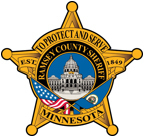 The Ramsey County Violent Crime Enforcement Team (RCVCET) is Ramsey County’s primary law enforcement team dedicated to fighting drug trafficking and the violent crime associated with narcotics in Ramsey County and the surrounding Metro area. The RCVCET is a multijurisdictional team of investigators from Ramsey County Sheriff’s Office, Saint Paul Police Department, Maplewood Police Department, Mounds View Police Department, New Brighton Police Department, Roseville Police Department and White Bear Lake Police Department, this constitutes nearly every agency in Ramsey County. There is also a Department of Homeland Security Investigations Agent embedded with the team. The goal is to stop the flow of narcotics and weapons in the region by targeting enforcement efforts on upper-level narcotics distributors, violent offenders, gang members and career criminals.
The Ramsey County Violent Crime Enforcement Team (RCVCET) is Ramsey County’s primary law enforcement team dedicated to fighting drug trafficking and the violent crime associated with narcotics in Ramsey County and the surrounding Metro area. The RCVCET is a multijurisdictional team of investigators from Ramsey County Sheriff’s Office, Saint Paul Police Department, Maplewood Police Department, Mounds View Police Department, New Brighton Police Department, Roseville Police Department and White Bear Lake Police Department, this constitutes nearly every agency in Ramsey County. There is also a Department of Homeland Security Investigations Agent embedded with the team. The goal is to stop the flow of narcotics and weapons in the region by targeting enforcement efforts on upper-level narcotics distributors, violent offenders, gang members and career criminals. The mission of the Rochester Police Department Drug Task Force (RDTF) is to target enforcement efforts on mid-to-upper level narcotics traffickers, violent offenders, gang members, and career criminals, to reduce the influx of illegal narcotics and weapons in the region. The goal is to disrupt or dismantle drug trafficking organizations (DTOs), reduce drug violence, and curb the flow of illegal narcotics that cause the highest degree of social harm and the greatest threat to the region. The RDTF will also conduct narcotic-related training for area businesses, community groups, and governmental agencies.
The mission of the Rochester Police Department Drug Task Force (RDTF) is to target enforcement efforts on mid-to-upper level narcotics traffickers, violent offenders, gang members, and career criminals, to reduce the influx of illegal narcotics and weapons in the region. The goal is to disrupt or dismantle drug trafficking organizations (DTOs), reduce drug violence, and curb the flow of illegal narcotics that cause the highest degree of social harm and the greatest threat to the region. The RDTF will also conduct narcotic-related training for area businesses, community groups, and governmental agencies. The Rock County Drug Task Force (RCDTF) is a cooperative partnership of law enforcement agencies encompassing Edgerton, Milton, Clinton, Town of Beloit, Orfordville, and Evansville Police Departments. The task force carries out the collective purpose of focusing on disrupting/dismantling the increasing multi-state, mid/upper-level drug trafficking organizations (DTO’s) distributing a variety of drugs in and around Rock County, WI. The RCDTF will further support street-level investigative operations targeting gangs tied to larger-scale sources of supply. The RCDTF will also sporadically focus on the interdiction of quantities of marijuana, cocaine, methamphetamine, heroin/fentanyl, and other controlled prescription drugs which would both lead to high-level investigations as well as keep a higher and safer quality of life for the citizens of Rock County.
The Rock County Drug Task Force (RCDTF) is a cooperative partnership of law enforcement agencies encompassing Edgerton, Milton, Clinton, Town of Beloit, Orfordville, and Evansville Police Departments. The task force carries out the collective purpose of focusing on disrupting/dismantling the increasing multi-state, mid/upper-level drug trafficking organizations (DTO’s) distributing a variety of drugs in and around Rock County, WI. The RCDTF will further support street-level investigative operations targeting gangs tied to larger-scale sources of supply. The RCDTF will also sporadically focus on the interdiction of quantities of marijuana, cocaine, methamphetamine, heroin/fentanyl, and other controlled prescription drugs which would both lead to high-level investigations as well as keep a higher and safer quality of life for the citizens of Rock County. The St. Paul Violent Crime Initiative (SPVCI) works with other agencies to target violent offenders utilizing the drug trade to promote their operations. The focus of the SPVCI is to identify and target local gangs/groups, gang/group members, and other violent offenders who are operating as drug trafficking organizations (DTO’s) or as part of larger DTO’s operating in St. Paul and the surrounding suburbs. Gang/group gun violence is closely tied to the drug trade, often funding the violence. SPVCI’s primary area of focus is from street dealers up to mid-level traffickers of M-30 (Fentanyl) pills, marijuana, heroin, cocaine, and methamphetamine.
The St. Paul Violent Crime Initiative (SPVCI) works with other agencies to target violent offenders utilizing the drug trade to promote their operations. The focus of the SPVCI is to identify and target local gangs/groups, gang/group members, and other violent offenders who are operating as drug trafficking organizations (DTO’s) or as part of larger DTO’s operating in St. Paul and the surrounding suburbs. Gang/group gun violence is closely tied to the drug trade, often funding the violence. SPVCI’s primary area of focus is from street dealers up to mid-level traffickers of M-30 (Fentanyl) pills, marijuana, heroin, cocaine, and methamphetamine. The North Central HIDTA (NCH) Fugitive Task Force (FTF) is a US Marshals Service- led initiative and is a cooperative partnership of federal, state, county, and city law enforcement agencies focusing on violent crime reduction by apprehending both federal and state fugitives relating to both drug and non-drug violent underlying offenses. The NCH FTF is primarily based in Milwaukee, WI, but also consists of deputized investigators outside of Milwaukee, which allows operations to commence in the eastern third portion of the state of WI. In addition to the apprehending of fugitives, the NCH FTF’s mission is to focus on all related crimes, such as the seizure of drugs, guns and illegally gained assets which are identified as part of the base fugitive investigation.
The North Central HIDTA (NCH) Fugitive Task Force (FTF) is a US Marshals Service- led initiative and is a cooperative partnership of federal, state, county, and city law enforcement agencies focusing on violent crime reduction by apprehending both federal and state fugitives relating to both drug and non-drug violent underlying offenses. The NCH FTF is primarily based in Milwaukee, WI, but also consists of deputized investigators outside of Milwaukee, which allows operations to commence in the eastern third portion of the state of WI. In addition to the apprehending of fugitives, the NCH FTF’s mission is to focus on all related crimes, such as the seizure of drugs, guns and illegally gained assets which are identified as part of the base fugitive investigation. The Washington County Drug Task Force (WCDTF) is a cooperative partnership between the Washington County Sheriff’s Office, Forest Lake Police Department, Woodbury Police Department and the Cottage Grove Police Department. The task force detectives are co-located at the Washington County Sheriff’s Office. Regional and local Drug Trafficking Operations (DTOs) have been and continue to be the primary drug trafficking threats in the WCDTF area of operations. These DTO’s sell and transport various illegal drugs throughout the WCDTF region. The primary source of these illegal drugs has been identified as being sourced out the Twin Cities Metropolitan area along with the surrounding suburbs. The WCDTF also responds to and investigates overdose cases. Overdoses continue to be a threat to the communities we serve.
The Washington County Drug Task Force (WCDTF) is a cooperative partnership between the Washington County Sheriff’s Office, Forest Lake Police Department, Woodbury Police Department and the Cottage Grove Police Department. The task force detectives are co-located at the Washington County Sheriff’s Office. Regional and local Drug Trafficking Operations (DTOs) have been and continue to be the primary drug trafficking threats in the WCDTF area of operations. These DTO’s sell and transport various illegal drugs throughout the WCDTF region. The primary source of these illegal drugs has been identified as being sourced out the Twin Cities Metropolitan area along with the surrounding suburbs. The WCDTF also responds to and investigates overdose cases. Overdoses continue to be a threat to the communities we serve.
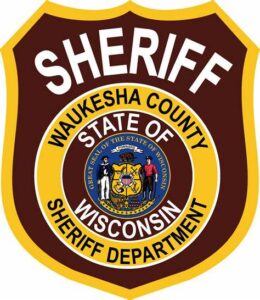 The Waukesha County Drug Task Force (WCDTF) is a DEA-sponsored task force and is a cooperative partnership of federal, state, and local law enforcement agencies addressing the production and trafficking of controlled substances in, though, and around Waukesha County, WI. The WCDTF focuses on: Identifying and disrupting/dismantling drug trafficking organizations (DTOs) operating in and around Waukesha County, WI as well as out-of-state DTOs which have a drug distribution link to Waukesha County. The WCDTF also carries out limited street-level drug investigations alongside local law enforcement agencies as part of the historical charter of the Waukesha Metro Drug board.
The Waukesha County Drug Task Force (WCDTF) is a DEA-sponsored task force and is a cooperative partnership of federal, state, and local law enforcement agencies addressing the production and trafficking of controlled substances in, though, and around Waukesha County, WI. The WCDTF focuses on: Identifying and disrupting/dismantling drug trafficking organizations (DTOs) operating in and around Waukesha County, WI as well as out-of-state DTOs which have a drug distribution link to Waukesha County. The WCDTF also carries out limited street-level drug investigations alongside local law enforcement agencies as part of the historical charter of the Waukesha Metro Drug board. The West Central Drug Task Force (WCDTF) is a multi-jurisdictional drug enforcement group focused on investigating drug trafficking in West Central, WI, stretching from the Mississippi River to the middle of Wisconsin. The purpose of the task force is to target mid to upper-level distributors of drugs with an added focus no disrupting or dismantling drug trafficking organizations (DTOs) operating within the region. Coupled with the support from the North Central HIDTA Investigative Support Center (ISC) the WCDTF is increasingly able to focus on the major DTOs that source drugs to their area from the Twin Cities, Minnesota and points beyond – such as: California, Pacific Northwest, and Illinois.
The West Central Drug Task Force (WCDTF) is a multi-jurisdictional drug enforcement group focused on investigating drug trafficking in West Central, WI, stretching from the Mississippi River to the middle of Wisconsin. The purpose of the task force is to target mid to upper-level distributors of drugs with an added focus no disrupting or dismantling drug trafficking organizations (DTOs) operating within the region. Coupled with the support from the North Central HIDTA Investigative Support Center (ISC) the WCDTF is increasingly able to focus on the major DTOs that source drugs to their area from the Twin Cities, Minnesota and points beyond – such as: California, Pacific Northwest, and Illinois.
